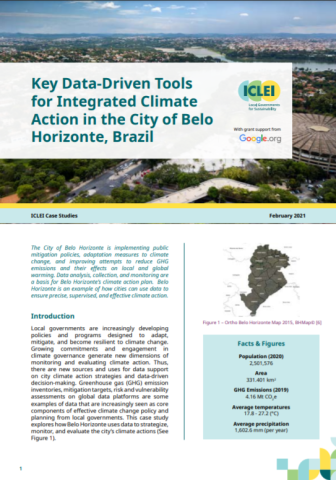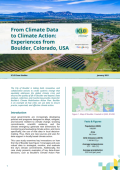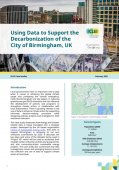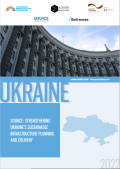
Local governments are increasingly developing policies and programmes designed to adapt, mitigate and become resilient to climate change. Growing commitments and engagement in climate governance generate new dimensions of monitoring and evaluating climate action. Thus, there are new sources and uses for data support on climate action strategies and data-driven decision-making in cities.
Greenhouse gas (GHG) emission inventories, mitigation targets, and risk and vulnerability assessments on global data platforms are some examples of data that are increasingly seen as core components of effective climate change policy and planning from local governments.
Belo Horizonte, Brazil, is an example of how cities can use data to ensure precise, supervised and effective climate action. This case study explores how Belo Horizonte uses data to strategize, monitor and evaluate the city’s climate actions to reduce GHG emissions and their effects on local and global warming.




